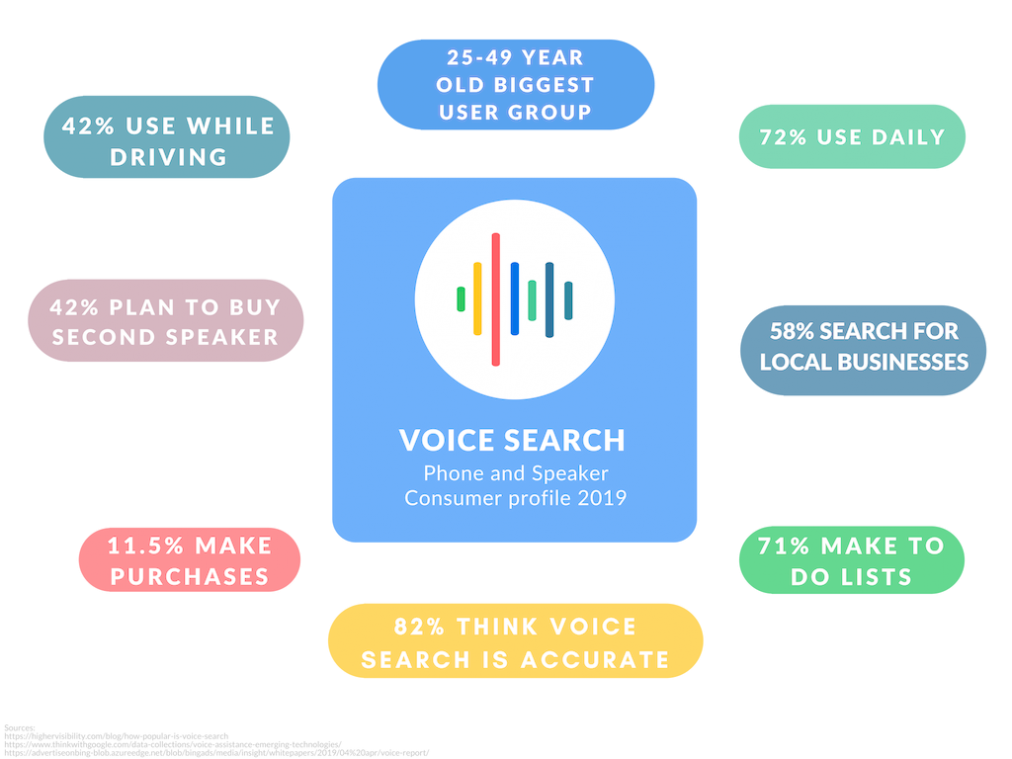Strategy
Industry Update
The Rise of Voice Searches Pt. 1
May 22, 2019
Industry Update
May 22, 2019
“Hey Siri – Hey Google – Hey Alexa” With the rise of smart speakers and mobile voice assistants, these phrases have become part of the regular lives of more than 27% of online mobile users around the world alone. Nowadays, you don’t have to be a CEO to have your own personal assistant that will support you throughout the day. The use of voice searches is up and coming and many are wondering where this new development will lead us to.
According to research conducted by Google, 20% of all searches are currently done through voice commands and this number is expected to increase globally by 30% by 2020. Not only are these voice searches used to quickly find information, but they’re also more frequently being used to get directions to a certain place or for finding specific products and services.
The statistics on the usage of voice searches on its own should make it easy to see why businesses should actively act upon this trend as soon as possible. Surprisingly enough though, this is actually not the case, as Uberall reported that only 4% of businesses in their study were ready for voice search. It’s needless to say that many companies are missing the opportunity of securing their chances of gaining a competitive advantage in the near future.
Per definition, voice searches are search queries made through the use of voice commands. This could be done on mobile devices with a virtual assistant or by smart speakers. Though voice searches is not a new concept for mobile devices, the latter has seen a tremendous increase in popularity over the last two years. The highest amount of smart speaker users are recorded in China, North America, the UK, as well as Germany and France.
The best-sold smart speakers are currently being offered by Google, with the ‘Google Home’ range, and Amazon, with its ‘Echo’ line. In addition to that, Apple’s Siri and Google’s voice assistant are most certainly no strangers in this market. With a massive boost in smart speaker sales during last year’s holiday season, many more consumers who possibly weren’t considering buying one themselves still got to be introduced to their new digital companion.
You might (and you should) be wondering who these consumers are and why they are getting invested in this trend. To make it clear, we’ve created a small infographic with some statistics on voice search users.

Taking into account that the global voice shopping market is expected to exceed €35 billion by 2022, many are wondering about the role of content marketing in digital advertising in this rapidly growing environment. ‘How will voice search affect SEO?’ ‘What are the possibilities of advertising through smart speakers?’ ‘What can you do to make your business voice search ready?’
Stay tuned for our coming blogs in which we will discuss the implications of voice search on both these subjects!